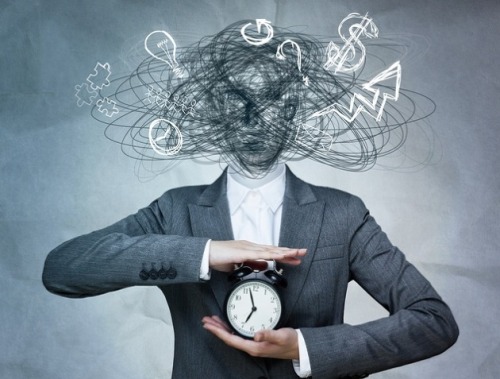#biorhythms
Resyncing the Bodyclock to Treat ADHD
Studies point to a new way to treat ADHD symptoms by addressing biorhythms.
It has long been known that individuals with ADHD tend to suffer from dysfunctional sleep. It’s unclear whether this is inherent to the disorder itself or if it results from ADHD symptoms, for example from feeling stressed all the time.
Either way, non-restorative sleep creates a vicious cycle—poor sleep begets an exhausted child (or adult), whose nervous system goes into overdrive (fight or flight reaction) to stay alert the next day (affecting attention and memory), and this prevents restorative sleep from occurring the following night. Furthermore, insomnia may be compounded by stimulant medication commonly used to treat the disorder. Add to this the nature of today’s ubiquitous high-stimulation environment and sleep quality worsens still.
A common aspect of sleep disturbance seen in those with ADHD is delayed circadian preference, aka delayed sleep/activity rhythm or delayed sleep phase disorder, which simply means the body clock is delayed and out of sync with natural night/day cycles. This type of circadian preference has been associated strongly with ADHD symptoms in adults, and studies have demonstrated that ADHD children with initial onset insomnia (trouble falling asleep) probably have delayed sleep phase disorder.
While not everyone with ADHD has sleep issues, those that do might very well benefit from targeting this area by resyncing the body clock. Two interventions have been suggested to advance the sleep phase: bright light therapy administered in the morning, and melatonin administration at bedtime. One promising study (mentioned above) showed that light therapy given to adults with ADHD over a three-week period resulted in decreased subjective (self-reported) and objective (neuropsychological testing) attentional symptoms, improved mood, and phase advance in circadian preference (i.e. subjects felt like going to sleep earlier, and did so).
Melatonin trials in ADHD children have shown improved sleep scores but not necessarily ADHD symptoms. (Melatonin tends to be suppressed and delayed in ADHD.) However one long term follow up study on melatonin safety in children in which parents were surveyed three to four years later showed that of the parents who had continued regular use of melatonin, ninety percent felt it continued to be effective for earlier sleep onset, and about two thirds reported it improved mood and behavior.
Another interesting eight-week trial compared the combination of melatonin and Ritalin to Ritalin alone—since stunted or delayed growth has been attributed to stimulants in children—and found that those treated with the combination grew more in height and weight, despite no difference in calorie intake. The authors suggested that the growth might be attributed to increased growth hormone, which is released during deep sleep, since the growth did not correlate with increased food intake. This highlights the intricacies of the body clock on hormone regulation.This area is promising, and since out of sync circadian rhythms are associated with a myriad of health problems, resyncing may improve sleep quality, attention and executive functioning, hormone regulation, and mental/physical health in general. Light therapy in particular may be helpful in rapidly improving sleep and attention.
You can do a self-assessment of your own circadian rhythm type at http://www.cet.org/eng/Tools_ENG.html#.
Post link

